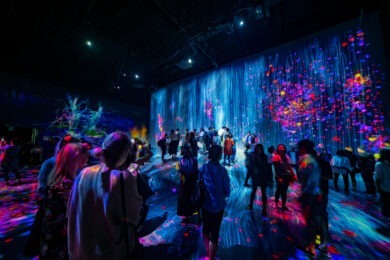Why demographics are less effective for building meeting agendas than values
In Canada, where I reside, each week brings a new influx of forms and documents from the government. Mostly, these are tax forms. They arrive in an array of colors: green, pink, blue and sometimes just plain white. For the longest time, I filed them based on color, until a savvy financial advisor highlighted the folly of my system. Grouping items by the color of their paper was illogical. Obviously, the color of the paper had no bearing on the content contained within, and as a result, I was merely assembling forms into categories that shared no meaningful commonalities.
Drawing parallels to people, categorizing individuals solely based on their generations is equally nonsensical. Just because people have orbited the sun on this rock we call home an equivalent number of times doesn’t imply they share anything else in common. When organizing a meeting, conference or any event, the idea that generational profiling—or as I like to call it, generational stereotyping—will somehow enhance its success is unfounded.
To substantiate this, we can refer to our research. Over the past seven years, we’ve surveyed more than 750,000 individuals worldwide, in 152 languages, with a team of academic researchers. We’ve been profiling peoples’ wants, needs and expectations, but most uniquely their core human values. Why? Because values shape every decision, behavior and emotion that humans possess. If you understand what people value, you understand people.
Read More: Leading and Learning From the Next Generation of Meeting Profs
The data indicates that understanding people’s values instead of their generation is a more intelligent approach to planning an effective meeting. For instance, if the attendees share values such as personal growth, ambition and social standing, this would steer an event strategy in a certain direction. Conversely, if their shared values involve relationships, environmentalism and creativity, your event strategy would look completely different.
We refer to this practice of grouping people based on their values as “valuegraphics,” distinguishing it from demographics. Demographics remain useful in identifying what people are, which can sometimes be important, but they are incapable of conveying who people are. And if you aim to organize a resonant, transformative and engaging event where people feel a true sense of belonging, wouldn’t you prefer knowing who they truly are, deep inside, where it counts?
Profiling groups of people is a service that my company, Valuegraphics Research Company, offers. However, you don’t need to hire us. To get a rough idea on your own, you can simply ask a set of three rigorously tested questions we’ve developed specifically to help everyone harness the immense power of shared human values. The short video below explains the “Three Telltale Questions,” and how you can use them to understand the values of the people for whom you’re planning an event.
How to Plan Events Your Attendees Want
But there’s something bigger at stake than effectiveness and efficiency. The more we rely on demographics to understand people, the more we reinforce demographic stereotypes that lead to ageism, racism, sexism, homophobia and a host of other issues. By merely changing how we look at people, several wonderful outcomes materialize.
Read More: Elevating Engagement
It’s far more effective in achieving our work objectives. People with similar values are as much as eight times more aligned on everything in their lives, making them a more targetable group. People who share demographics alone are, on average, only 10.5% aligned. In other words, creating an event for a demographically defined audience gives you roughly a 10% chance of success, whereas using values as a guide to find your audience improves your chances to as much as 80%. Personally, I’d rather stack the odds in my favor, whether planning an event, a product launch or anything at all!
From a macro perspective, it’s quite uplifting. Our research worldwide indicates that there are only 56 core human values uniting us all on this beautiful planet. If we concentrate on these—rather than demographics that divide us into arbitrary, artificial and antiquated groups—we can build values-driven events, products, services, brands, ideas…and, indeed, a values-driven world.
—
 David Allison, founder of The Valuegraphics Project, presented research on this topic at IMEX in Frankfurt and Vegas, as well as to ASAE, MPI’s WEC, and at SITE global events. Our data is used by brands like PayPal, lululemon, the United Nations Foundation and Five Star school supplies. We’ve partnered with Google to release the Belonging Index to help event planners understand how to plan events so different kinds of people around the world feel like they belong.
David Allison, founder of The Valuegraphics Project, presented research on this topic at IMEX in Frankfurt and Vegas, as well as to ASAE, MPI’s WEC, and at SITE global events. Our data is used by brands like PayPal, lululemon, the United Nations Foundation and Five Star school supplies. We’ve partnered with Google to release the Belonging Index to help event planners understand how to plan events so different kinds of people around the world feel like they belong.




